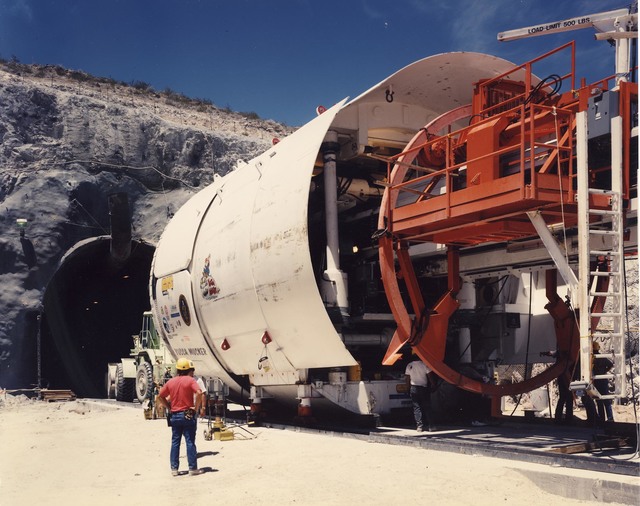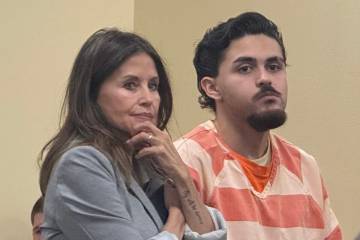Nevada outlines concerns on Yucca license restart
Nevada officials raised multiple concerns about proposed information-gathering steps outlined by the U.S. Nuclear Regulatory Commission to resume the Yucca Mountain licensing proceeding.
Earlier this month, the Nuclear Regulatory Commission announced that it will review the U.S. Department of Energy’s application for authorization to construct a high-level radioactive waste repository at Yucca Mountain.
The commission plans to conduct “information-gathering activities” related to the suspended adjudication on the application, according to the Nuclear Regulatory Commission’s statement released on Aug. 8.
In a Friday letter to Andrew Bates, chairman of the Licensing Support Network Advisory Review Panel of the U.S. Nuclear Regulatory Commission, Bob Halstead, executive director of the Nevada Agency for Nuclear Projects outlined multiple concerns about the proposed information-gathering procedures.
The commission wants to hold a virtual meeting of the Licensing Support Network Advisory Review Panel to provide information to, and gather input from advisory panel members and the public regarding reconstitution of the Licensing Support Network or a suitable replacement system, an online database of nearly four million documents backing the adjudicatory hearing on the Yucca Mountain application. The Licensing Support Network was decommissioned after the hearing was suspended in 2011.
Halstead said in a letter that it’s “unlikely” that the recipients of the NRS’ memorandum, Licensing Support Network Advisory Review Panel and members of the public were adequately notified.
Citing a cursory review of the panel’s meeting transcript 13 years ago, Halstead said that a majority of the members of the panel are no longer employed by the entity. As for “interested members of the public,” Halstead said such individuals will number in the “thousands” nationally and internationally.
“Any serious effort to give notice of your planned activities to all interested members of the public would include, as a minimum, the federal register by NRC of those activities,” Halstead said.
Halstead said that a single “virtual” meeting cannot compare in value to one or more in-person, face-to-face meetings. Instead, he called for “numerous face-to-face” meetings.
“A single ‘virtual’ meeting simply cannot be called ‘similar’ to a decade-long sequence of meetings of all stakeholders,” Halstead said.
Nevada officials believe that the Nuclear Regulatory Commission must chip in for those attendees who are unable to incur the costs of attending.
“These costs must be absorbed by the NRC if it is serious about receiving input from interested members of the public,” Halstead said.
Nevada’s letter also said that a provision must make every Licensing Support Network meeting and webinar open to the public. Each such meeting must be recorded with archived video and written transcripts available to the public, the letter said.
Nevada officials also took issue with the commission’s limited funding for the proposed information-gathering activities. According to the documents, $100,000 will come from the Nuclear Waste Fund. As of June 30, approximately $634,000 remained in unobligated Nuclear Waste Fund appropriations.
Halstead called the proposed funding of the task “insufficient.”
“Nevada believes that it is unacceptable for the LSN process to be constrained and impaired by NRC’s desire to minimize the expenditure of its currently available resources when NRC well knows those resources must be increased exponentially as a prerequisite to the completion of the adjudicatory proceeding,” Halstead said.
Nevada officials strongly oppose the resumption of the Yucca Mountain licensing proceeding. Should it resume, however, Halstead said that the state’s participation is “necessary.”
The letter is Nevada’s latest attempt to block the proposed nuclear waste repository at Yucca Mountain. The project was presumed dead after it was mothballed by former President Barack Obama in 2011, but the situation changed when the Trump administration allocated $120 million for the restart of the project in its budget blueprint.
Contact reporter Daria Sokolova at dsokolova@pvtimes.com. On Twitter: @dariasokolova77
















